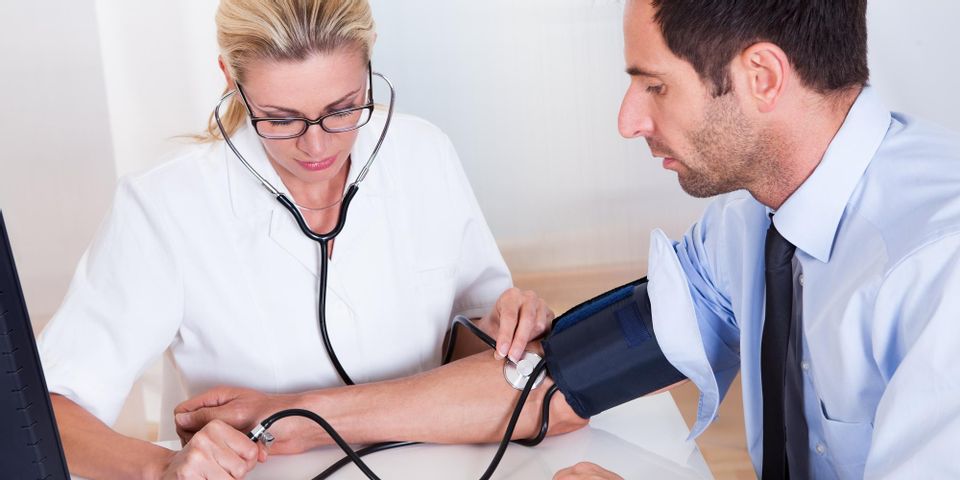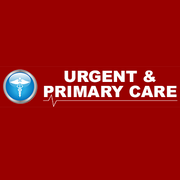
Urgent care facilities often treat high blood pressure, which is also known as hypertension. It’s very common—affecting more than 100 million Americans. Many people experiencing the condition don’t know they have it, so it remains untreated. When high blood pressure goes unaddressed, the results can lead to arterial damage and organ failure.
What is High Blood Pressure?
For the body to function properly, organs and tissue are fed oxygenated blood that travels via the circulatory system through capillaries, veins, and arteries. The heart provides the blood. As it beats, it creates two different types of pressure: systolic and diastolic.
Systolic pressure is created when the blood pumps from the heart to the arteries and the circulatory system. Diastolic pressure occurs when the heart rests between beats. These two pressures represent your blood pressure number.
Normal blood pressure is considered in a range beneath 120 mm Hg (systolic) and 80 mm Hg (diastolic).
When blood pressure increases, it creates two stages of hypertension.
- Stage 1: Between 130 mm Hg and 139 mm Hg systolic and 80 mm Hg to 89 mm Hg diastolic.
- Stage 2: 140 mm Hg to 180 mm Hg systolic and 90 mm Hg to 120 mm Hg diastolic.
If your blood pressure rises to these stages or higher, seek out a physician's care immediately.
What Are the Two Types of High Blood Pressure?
Primary Hypertension (Essential Hypertension)
This is the most common type of high blood pressure. It will take years to develop, and has numerous potential causes, including diet and how the body naturally ages. Men over the age of 35 and women above the age of 45 are at an increased risk for high blood pressure.
Secondary Hypertension
Secondary hypertension is less common. It usually occurs as a result of medications, like amphetamines, birth control pills containing estrogen, non-steroidal anti-inflammatory drugs (NSAIDs), along with some antidepressants and antipsychotics.
What Are its Symptoms & Causes?
Symptoms
 Nearly 20% of Americans don’t know they have high blood pressure. This is because patients remain largely asymptomatic until the pressure reaches very high levels. Even in those cases, the symptoms are common, and most people ignore them. Signs of high blood pressure include shortness of breath, headaches, and nosebleeds.
Nearly 20% of Americans don’t know they have high blood pressure. This is because patients remain largely asymptomatic until the pressure reaches very high levels. Even in those cases, the symptoms are common, and most people ignore them. Signs of high blood pressure include shortness of breath, headaches, and nosebleeds.
If hypertension goes untreated, symptoms will worsen to include irregular heartbeats, chest pain, and blood in the urine. Others experience extreme fatigue to the point of confusion and vision problems.
Causes
Lifestyle choices can be a deciding factor in the development of high blood pressure. Those who are inactive and overweight are at an elevated risk of hypertension. A diet that contains large amounts of salt and cholesterol will also increase your blood pressure. Smoking tobacco products and frequent alcohol consumption are also risk factors.
Medical ailments can cause secondary hypertension. Kidney conditions, diabetes, thyroid, adrenal gland disorders, and sleep apnea have been known to cause high blood pressure.
There are also factors that you cannot control, such as a family history of hypertension—especially if one or both of your parents have experienced it.
What Are Its Effects & Treatment?
The Effects of Hypertension
When it goes untreated, hypertension will affect the entire body. The damage begins with the heart and blood vessels. They’ll work harder to pump blood through the body, but they’ll also work less efficiently.
The force of the high blood pressure damages tissue in the arteries. Over time, cholesterol will form plaque along the artery walls, which can lead to atherosclerosis.
The more this cholesterol-derived plaque builds up, the narrower the arteries become. This further increases your blood pressure as your heart continually works harder to transmit blood through the body. This can lead to erratic heartbeats, stroke, kidney failure, and heart failure.
Treatment & Prevention
 Physicians at urgent care facilities can help you monitor and control your blood pressure. Depending on your situation, they may suggest losing weight, becoming more active, or changing your diet. There are also medications available that they can prescribe.
Physicians at urgent care facilities can help you monitor and control your blood pressure. Depending on your situation, they may suggest losing weight, becoming more active, or changing your diet. There are also medications available that they can prescribe.
For those with chronic conditions—such as diabetes—the solution may lie in treating that illness. In some cases, getting your diabetes under control will automatically lower your pressure.
However, the best treatment is prevention. By maintaining an active lifestyle, making proper choices with your diet, and going for routine appointments with your primary care physician, your blood pressure will remain under control.
For hypertension treatment, residents throughout Albany, NY, rely on Urgent & Primary Care. For nearly 20 years, they’ve used advanced equipment and thorough examinations to help their patients fully recover. From diagnosis and treatment to follow-ups, they’re with you every step of the way. For more information on their urgent care services, including weight loss assistance and diabetes treatment, visit their website. To make an appointment, reach out to them at (518) 463-8262.
About the Business
Have a question? Ask the experts!
Send your question

